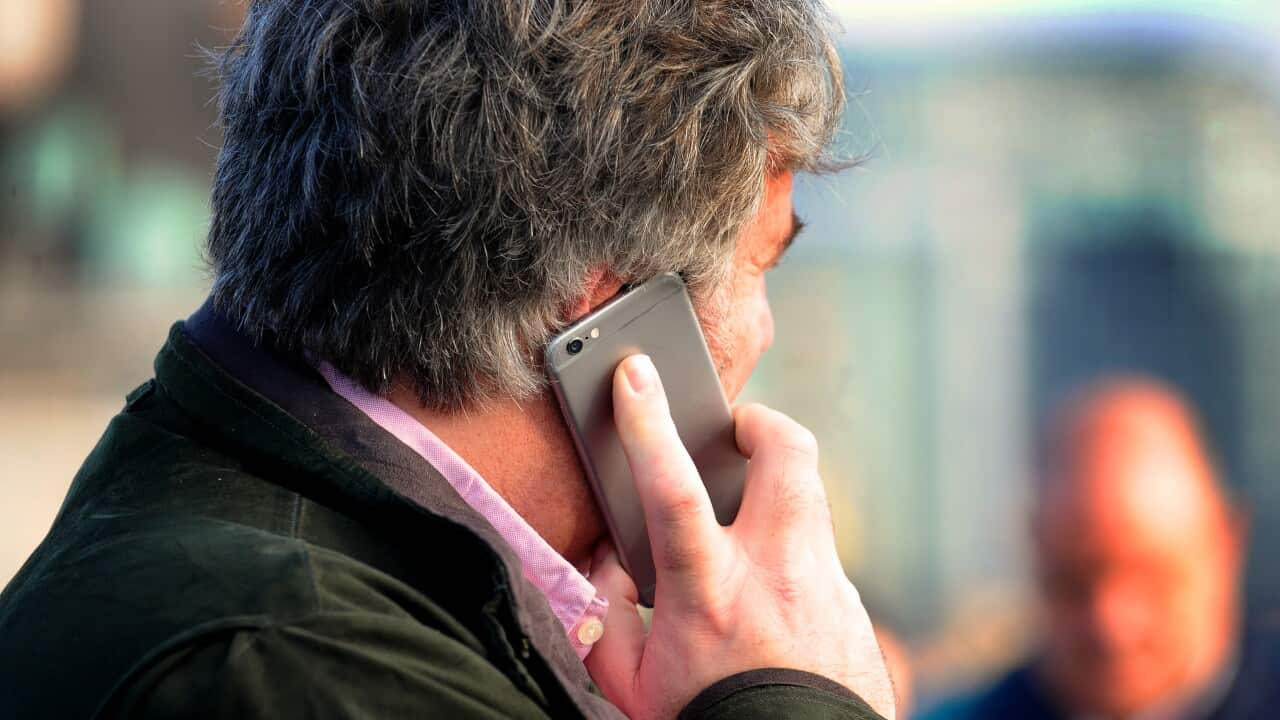Mobile phones are not linked to cancers in the brain and head, according to a review of evidence led by Australian scientists.
The World Health Organization-backed research looked into more than 5,000 studies conducted between 1994 and 2022 and found brain tumour rates were stable and did not increase despite the widespread uptick in mobile phone use in the same period.
The finding comes after widespread concern about the impact of mobile phone radiation and a warning from the International Agency for Research on Cancer in 2011 that classified phone radiation as a possible carcinogen.
LISTEN TO

For some cancer patients, they're battling the disease - and discrimination
SBS News
29/08/202406:43
"There have been many studies in the past that have had contrary conclusions so it's important to combine all the evidence and really let people know what's really going on," Australian Radiation Protection and Nuclear Safety Agency (ARPANSA) health impact assessment assistant director, Associate Professor Ken Karipidis said.
Findings revealed that the duration of mobile phone usage didn't increase the risk of cancers.
"If people use their mobile phones for 10 years or more, we didn't find an association, and we also found no association with the amount of mobile phone use, either the number of phone calls that people make or the time that people spend on the phone," Karipidis added.
If people use their mobile phones for 10 years or more, we didn't find an association.Ken Karipidis
Co-author and University of Auckland cancer epidemiology honorary professor Mark Elwood said their findings were concluded with "moderate confidence" — the highest rating a review without clinical trials can receive.
Findings were applied to 3G and 4G networks only and Elwood shared that there have been no major studies of 5G networks yet.
"There are studies of radar, which has similar high frequencies [to 5G] ... These do not show an increased risk."
ARPANSA research scientist Rohan Mate hopes their findings will reassure people that mobile phones are safe to use.
"We're hoping that these results will be another way we can reassure them about their safety (and) hopefully relieve them of some of their anxiety surrounding engaging with technology," Mate said.









